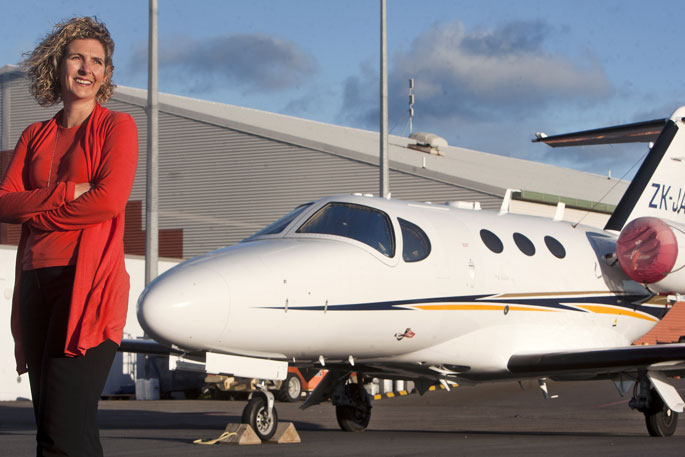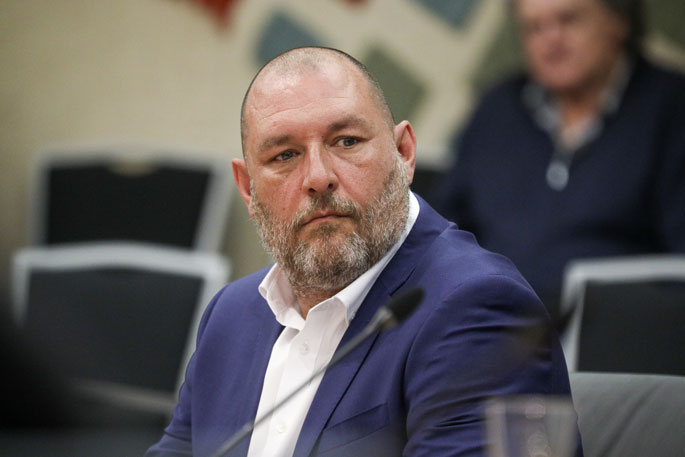The 'great resignation”, Covid-19 fatigue and workers demanding higher pay as inflation rises, are among issues facing rates-funded Rotorua organisation Infracore, its leader says.
Infracore's financial results were presented to Rotorua Lakes Council's Operations and Monitoring Committee meeting on Thursday, along with those of other council-controlled operations, Rotorua Economic Development and Rotorua Airport.
The results covered the financial year up to December.
Rotorua Economic Development reported a deficit of more than $160,500; Rotorua Airport a deficit of more than $91,000 and Infracore a surplus of $33,000.
Infracore chief executive Matthew Scott said the financial report was 'currently sitting behind budget” due to, in part, capital project timings and the impact of Covid-19 and the August lockdown.
Infracore's report for the meeting stated the organisation had budgeted for a year-to-date deficit of $138,000, meaning the infrastructure service provider's $33,000 deficit was favourable against the budget by $105,000.
Scott's presentation stated the organisation had been awarded four new work programmes by the council worth about $100,000 a year.
He said Covid-19 fatigue was impacting the organisation.
'Covid-19 obviously, and for everybody, is tiresome. It does take its toll on the resources of our employees and there is an element of fatigue with it.
'It's fair to say that a high percentage of people become derailed by it.”
High inflation was also 'staring [Infracore] in the face” and there was increased expectation from staff and unions to pay a living wage.
Infracore had also been impacted by the so-called 'great resignation” - a worldwide social phenomenon of a sharp rise in resignations since the beginning of the pandemic.
'People are leaving, they're not leaving for other jobs necessarily, they're not necessarily leaving just for more money, but lifestyle changes, people's expectations on what their lives look like, what they expect in their lives and what they want from their workplace are changing – internationally.”
He said that was something all businesses needed to 'face and accept”.
Rotorua mayor Steve Chadwick said the council was not so much worried about the 'other metrics” other than Infracore's social good focus in the Covid-19 environment.
She asked if Infracore could assist with the public with 'sustainable backyards” to help the people grow their own food, and Scott said there was an opportunity in that area Infracore could explore.
Councillor Merepeka Raukawa-Tait asked Scott how long it might be before Infracore could pay all staff the living wage, which was currently $22.75 an hour according to Living Wage Aotearoa.
Scott said this was something he supported and aspired to deliver at Infracore.
'However, we need to look at the commercial practicalities. There's obviously an increased cost to that structure. The increased cost isn't just in those rates, it moves through the whole of the wage structure under the collective agreements.”
Councillor Peter Bentley asked Scott if there would be an improvement in responsiveness to lake weed – an accumulation of which was causing a stench at the Rotorua lakefront.
Scott said Infracore had worked in conjunction with the council to clear the weed but it was 'not a shortfall of Infracore that that weed is there”.
In the meeting, Rotorua Airport chief executive Nicole Brewer said the airport's more than $91,000 deficit was heavily impacted by Covid-19 and associated lockdowns.
 Rotorua Airport chief executive Nicole Brewer in 2015. Photo / Ben Fraser / Rotorua Daily Post.
Rotorua Airport chief executive Nicole Brewer in 2015. Photo / Ben Fraser / Rotorua Daily Post.
The result was after depreciation and before tax.
However, it was lower than the budgeted deficit of $391,000, which Brewer said was because the runway's depreciation had stopped as it was being treated as a lifelong asset.
She said passenger numbers were ahead of budget in the first half of the financial year, but had since declined.
She said there were 'no issues” with cash flow and Rotorua Airport was on track for non-financial performance measures such as customer service.
She said the airport had implemented a new landing fee pricing structure with Air New Zealand which would be a 'significant upside in revenue” but some of that revenue would be eroded due to 'soft” passenger numbers from the ongoing Omicron outbreak.
She said two airport employees had tested positive for Covid-19 in the week prior, but neither were at work so it had not had a significant impact on the airport.
RED chief executive Andrew Wilson said the organisation had developed a new 'destination brand” in the wake of 'a really challenging past couple of years”.
RED is Rotorua's economic and tourism development agency.
 Rotorua Economic Development chief executive Andrew Wilson. Photo / Andrew Warner / Rotorua Daily Post.
Rotorua Economic Development chief executive Andrew Wilson. Photo / Andrew Warner / Rotorua Daily Post.
'We are still confronting a number of challenges that are really impacting our reputation.
'The work on our destination brand looks beyond this. I've no doubt these challenges we're facing will be overcome, they're temporary. We must continue to be strategic.”
The new brand, which included a Government-funded $55,000 new logo launched the same day, aimed to focus on 'meaningful stories” with Rotorua people at its centre.
Councillor Raj Kumar asked what RED's involvement was in finding sector solutions for Rainbow Springs, which confirmed its closure on March 1.
Wilson said the reality for businesses such as Rainbow Springs was 'tough trading conditions” and the business had made 'strategic calls”.
'We do work with a lot of individual businesses.
'It's never an easy set of discussions … we have to be careful we're not financial advisors.”
Wilson said he expected, provided there were no new Covid-19 variants, Rotorua's tourism and hospitality industry would 'be starting to hum” later in the year, although it wouldn't be 'full noise”.
RED's report for the meeting stated commission and trading revenue was significantly down on budget, driven by lockdowns and traffic light settings that had reduced visitor numbers.
RED had also facilitated the delivery of the 'Vax Vegas” campaign in November and December and all funding – almost $670,000 - had been spent, which contributed to spending in the period.
"Taking into account the additional expenditure associated with Vax Vegas, the team has reduced expenditure to offset the deficit in revenue,” the report stated.
'Further savings are being sought and the forecast year end position remains in line with the budget.”
RED had budgeted an almost $34,000 deficit for the period, and had received almost $2.3m in funding from the council.
-Local Democracy Reporting is Public Interest Journalism funded through NZ On Air




0 comments
Leave a Comment
You must be logged in to make a comment.